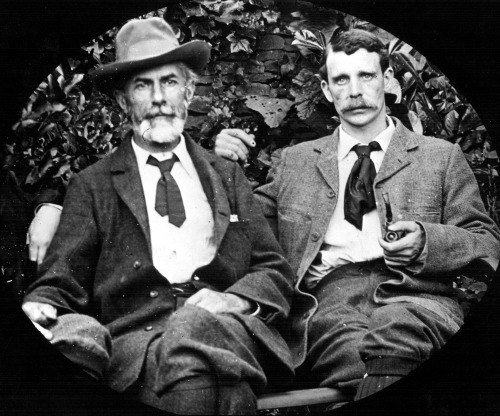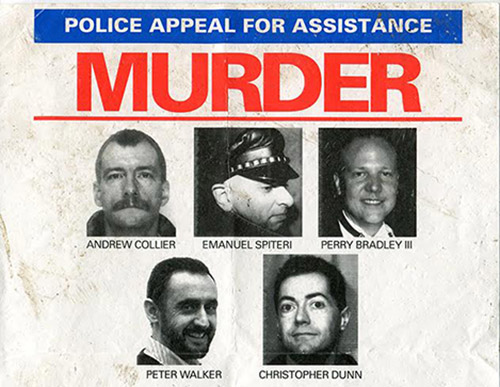Someone who definitely deserves to be remembered, and indeed celebrated, is Brighton’s very own Edward Carpenter. One of 10 children, Edward was born in 1844, the family home being 45 Brunswick Square (okay it’s Hove really). In 1854 he began attending Brighton College. Domestic pursuits included learning the piano and taking long horse-rides out over the Downs. Around this time he “felt a friendly attraction towards my own sex, and this developed after the age of puberty into a passionate sense of love”.
Having left Brighton in 1863, he was inspired by meeting the American 19th century gay poet Walt Whitman in 1877. Carpenter purchased a property near Sheffield and began promoting a socialist lifestyle that included market gardening and sandal making! His political writings over the years to come became the very basics of British Socialism. He was pro-feminist and a close friend of the lesbian novelist Edith Lees Ellis [wife of sexologist Havelock Ellis].
In 1890 Carpenter met his long-term lover George Merrill, a young working class man who surprised Carpenter’s friends by his frankness about his sexuality. Carpenter soon began writing enthusiastically about men loving men and in 1895 published Homogenic Love, the same year as the Oscar Wilde trial scandalised the country.

Inspirational
Carpenter and his ideas became an inspiration to other people. Artist CR Ashbee was inspired to found the co-operative Guild of Handicrafts in London in 1888, and agreed with Carpenter on the glorious love of comrades. EM Forster claimed he was inspired to write his positive gay love story Maurice after George Merrill touched his buttocks in 1912. And author Michael Davidson proudly remembers that in 1924
“I was pinched on the bum by England’s Walt Whitman”.
Carpenter was 80 that year (and still frisky), and his birthday was commemorated by a telegram from the entire Labour Cabinet. A mark of just how important he was considered at that time.
Carpenter wrote one of the early textbooks on homosexuality The Intermediate Sex. It was published in 1908, and was so popular that it went through 3 impressions in 4 years. By this point his writing was positively celebrating the homosexual condition as “a forward force in human evolution”. In 1914, forward thinking Carpenter and friend Laurence Housman set up the British Society for the study of Sex Psychology. The society gave talks on such unheard of topics as women’s sexuality and homosexuality.
George Merrill and Edward Carpenter moved to Guildford after the First World War, and in 1928, after 30 years together, died within a year of each other. They are buried together in Guildford.
Carpenter was a truly inspirational man, seriously ahead of his time in terms of his ideas on sexuality. A real pioneer that Brighton and Hove should be sincerely proud of. If you keep you eyes peeled around town you will see he has a Brighton & Hove bus named after him.
He wasn’t lying in the gutter looking at the stars, but trying to foster love and understanding on both a personal and political level.
This originally appeared in Brighton Ourstory newsletter 7, Winter 1999.

